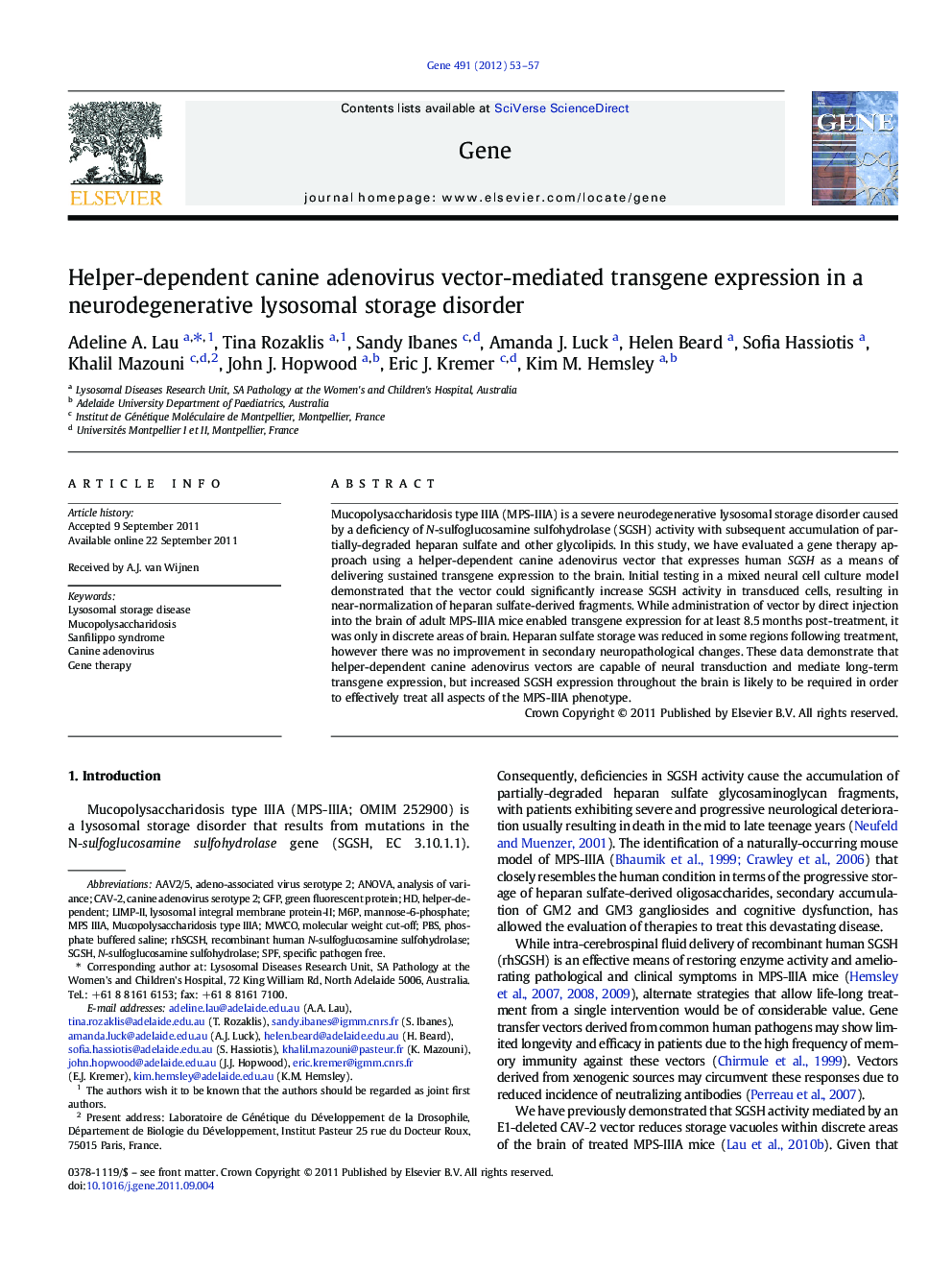| Article ID | Journal | Published Year | Pages | File Type |
|---|---|---|---|---|
| 2818225 | Gene | 2012 | 5 Pages |
Mucopolysaccharidosis type IIIA (MPS-IIIA) is a severe neurodegenerative lysosomal storage disorder caused by a deficiency of N-sulfoglucosamine sulfohydrolase (SGSH) activity with subsequent accumulation of partially-degraded heparan sulfate and other glycolipids. In this study, we have evaluated a gene therapy approach using a helper-dependent canine adenovirus vector that expresses human SGSH as a means of delivering sustained transgene expression to the brain. Initial testing in a mixed neural cell culture model demonstrated that the vector could significantly increase SGSH activity in transduced cells, resulting in near-normalization of heparan sulfate-derived fragments. While administration of vector by direct injection into the brain of adult MPS-IIIA mice enabled transgene expression for at least 8.5 months post-treatment, it was only in discrete areas of brain. Heparan sulfate storage was reduced in some regions following treatment, however there was no improvement in secondary neuropathological changes. These data demonstrate that helper-dependent canine adenovirus vectors are capable of neural transduction and mediate long-term transgene expression, but increased SGSH expression throughout the brain is likely to be required in order to effectively treat all aspects of the MPS-IIIA phenotype.
►SGSH gene mutations cause the neurological disease Mucopolysaccharidosis (MPS)-IIIA. ►Helper-dependent canine adenovirus SGSH transfer was examined as a potential therapy. ►Transduced MPS IIIA neural cells showed increased SGSH activity and reduced storage. ►In vivo, transgene expression was maintained for 8.5 months in discrete brain regions. ►Increased SGSH activity will be required for brain-wide improvement.
